Inside this Article
Do Your ResearchChoose a Good Domain NameChoose a Reliable Web Hosting ServiceInstall WordPress and Set Up Your SiteSet Up and Customize the Most Relevant PagesRevise, Test, and Publish Your Business SitePromote Your SiteAn Easier Alternative to Get a Business Website OnlineFinal Thoughts and Some Closing AdviceFAQ
Whether you’re planning to build an e-commerce store or an attractive website to sell your services, a professional website is one of the fundamental components of your business’ success. But that doesn’t mean that you need a team of specialized website designers and an unreasonable investment to create one. In fact, as of 2025, it’s never been easier to create, maintain, and manage your own business website.
I’ve been a freelancer for many years and in that time, I’ve worked for a lot of different ventures with a lot of different requirements and visions. No two businesses are the same, and no two business websites should be, either. But I can still provide you with a basic roadmap for creating a successful business website.
Below, you’ll find what you need to know to start setting up, publishing, and promoting your website. If you already have an idea of what you want from your site, you can sign up for website hosting and skip to the technical section, or keep reading to discover how to make the most out of your online presence.
Do Your Research
Before you start, it’s important to note that while an effective website will be fundamental for most businesses, what “an effective website” is will vary depending on each business. The first step is defining the main purpose of your website.
A website to attract customers to your brick-and-mortar business will mainly provide information about what your business sells or offers, its location, and hours of service. On the other hand, if you’re planning to start a fully online e-commerce store, then the main purpose of your website will be, well, to sell stuff through your website.

Pro-Tip: Don’t try to create an everything-all-at-once website from the get-go. Focus on the fundamental aspects of your business, and once you’ve established those parts of your site, you can start building on top of it.
For example, if you’re creating a website for your podcast, don’t immediately add a section for merch. Adding e-commerce functionality will complicate the site-building process and anyways, there are tons of third-party sellers you can use until then.
Get a Notebook and Write Things Down
Once you know the main purpose of your website, you’ll need to gather some key information. (An actual physical notebook isn’t required, but I thought it sounded punchy.) Start by looking at your target audience and try to get specific. If you’re building a website for your gym, are you trying to attract hardcore powerlifters, or are you trying to create a welcoming space for all people like Planet Fitness? Having a good idea about your target audience is fundamental, since that will inform everything from the copy on your site to its design and logo.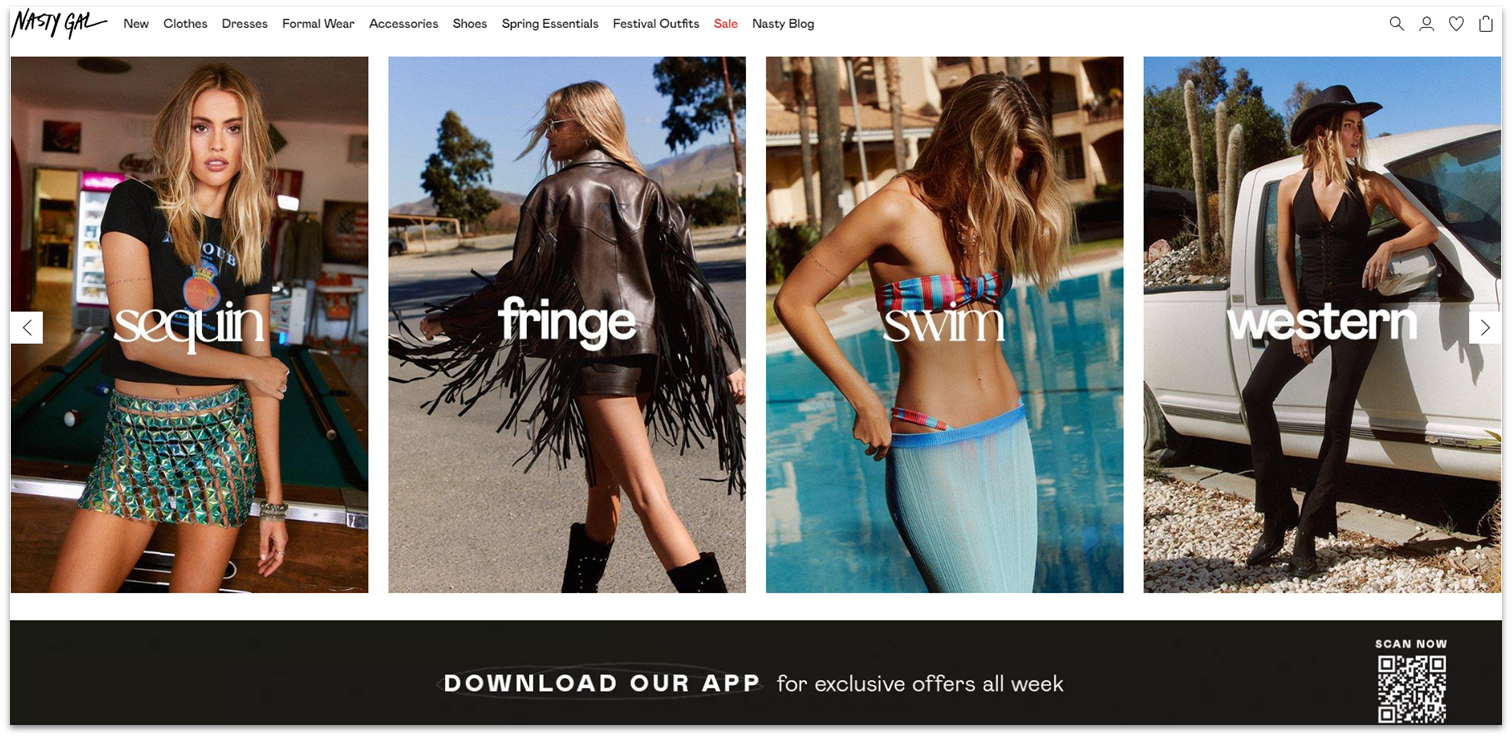
- Web hosting – where your website lives
- Domain registration – the cost of your URL
- Marketing – this can include hiring a social media manager, paying for promoted posts, subscribing to an e-newsletter service, and more
- Opportunity costs – this can include how many hours you dedicate or whether you hire someone to help
Create a Content Plan for Your Website
Regular updates will ensure that your business is fresh in people’s minds. It’s also one of the main factors for a website’s visibility on search engines, and terribly important psychologically (thanks, recency bias!). That doesn’t mean that every business needs a regularly updated blog, but having a content roadmap to follow will come in handy to keep visitors coming to your website. It might even serve as a channel to bring in new customers. As an anecdote, a local pharmacy in my city recently started its own TikTok account. Instead of uploading boring semi-regular updates about new medications and discounts, the pharmacy used fun posts and skits to mark every new announcement. As a result, their online presence has gained them a slew of new customers and a small online following. So, a good content plan has the potential to be an unexpected boon for your business.Choose a Good Domain Name
A domain name is your website’s online address, and it’s how other people can find and access your website (ours, for example, is websiteplanet.com). Choosing the right domain name for your business will affect how people find you, reach out to you, and how likely you’ll get exposure. If your business already has a name, that’s your domain name and you should see if you can register it. If not, try to think of something short, memorable, and unique.
Choose a Reliable Web Hosting Service
In (really) simplified terms, a web hosting service provides access to a server that stores, manages, and makes your website available. There are plenty of web hosting providers out there with huge variations in quality. When choosing a host, you should focus on:- Quick loading speeds
- High uptime (meaning there are virtually no periods of time where your website is inaccessible)
- Security
- Good value for the cost
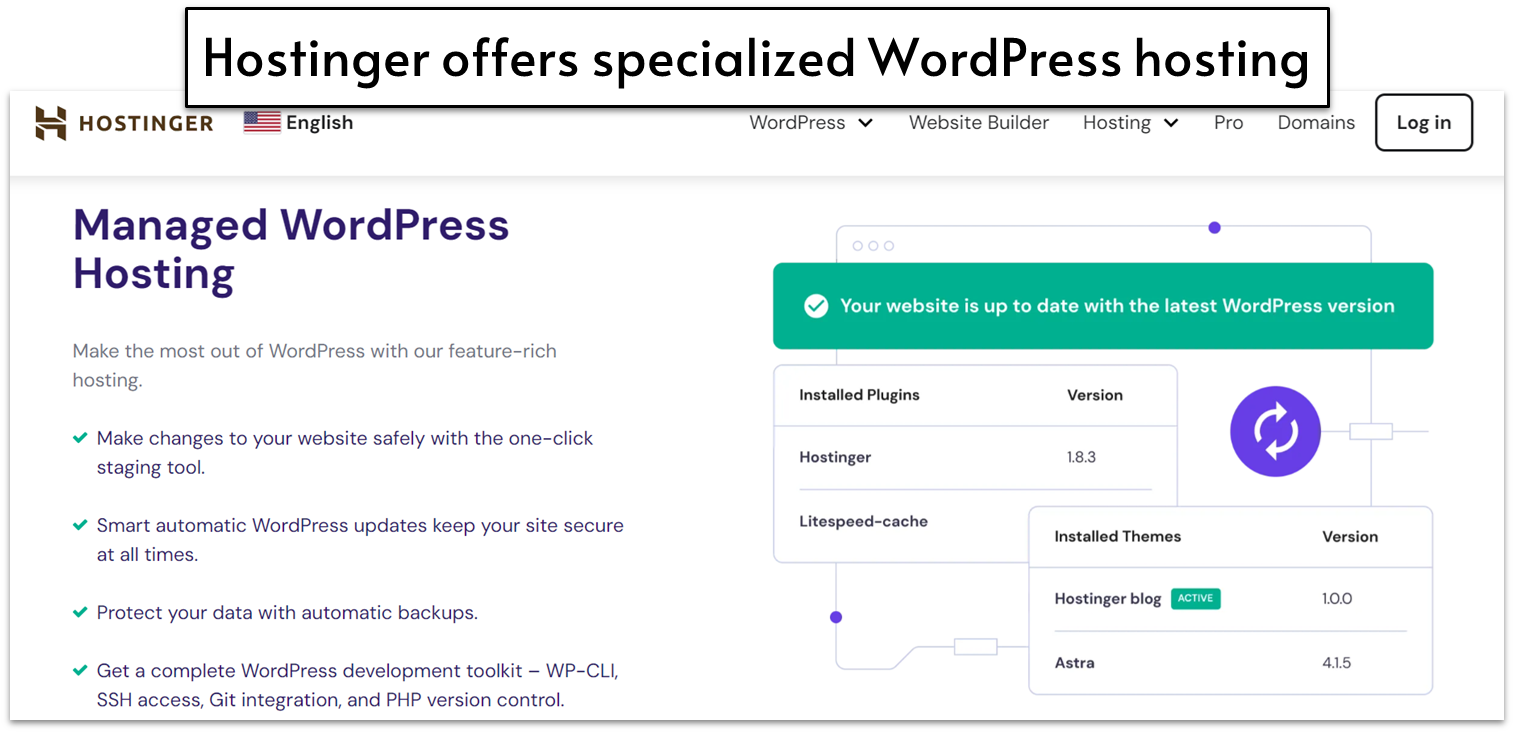
Install WordPress and Set Up Your Site
For this guide, I chose to set up my website using Hostinger. Don’t worry though – the process will look similar to most other hosts, and you can usually find in-depth information about the WordPress installation process in your host’s knowledge base. (If you’re looking for a truly no-fuss installation process, though, I’d recommend Hostinger as you’ll see below.) With Hostinger, all you have to do is sign up for an account and go to the user dashboard. There, on the “Websites” tab, click on “Add website” and then “WordPress” (Hostinger also gives you the option to use its proprietary website builder, but we’ll focus on WordPress for this segment).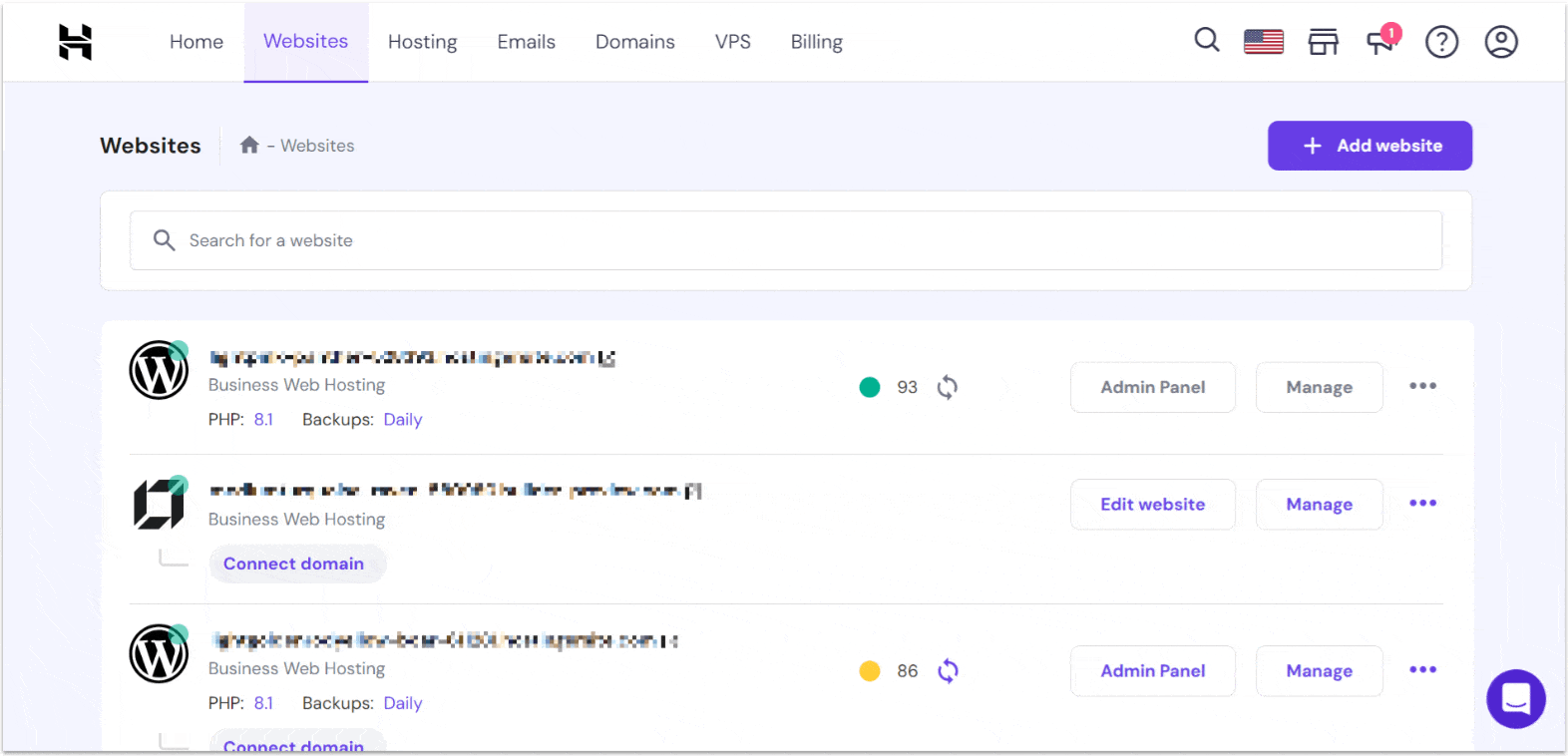
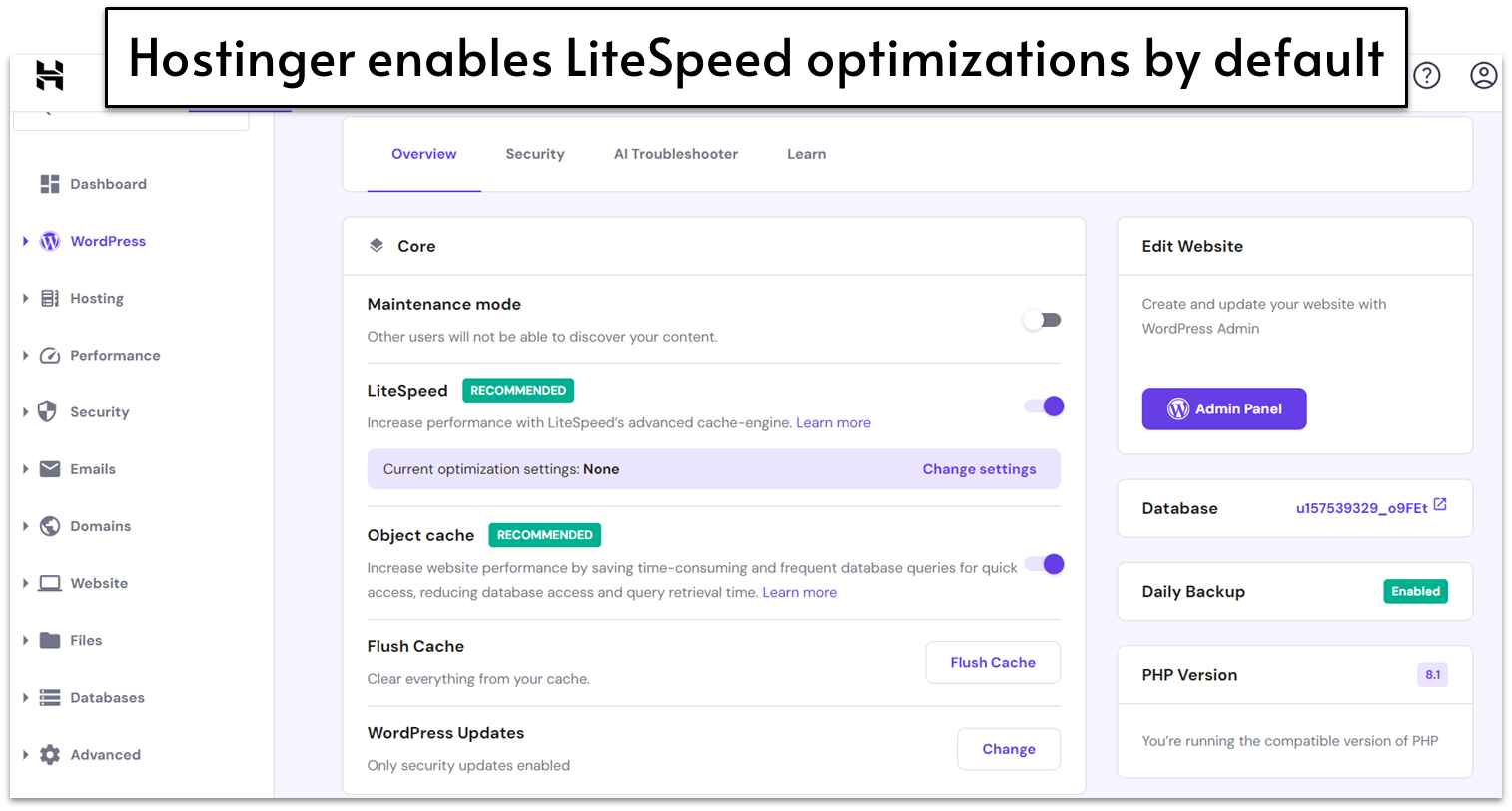
Choose a WordPress Builder and Theme
You don’t have to use the (in my opinion, sometimes unpleasant) default block builder to customize your website. There are plenty of high-quality page builder plugins for WordPress like Elementor or Astra. These plugins give you more widget and customization options, as well as a more user-friendly interface for designing your site. To install one of these plugins, all you have to do is go to the “Plugins” tab on your WordPress dashboard and click the “Add New Plugin” button.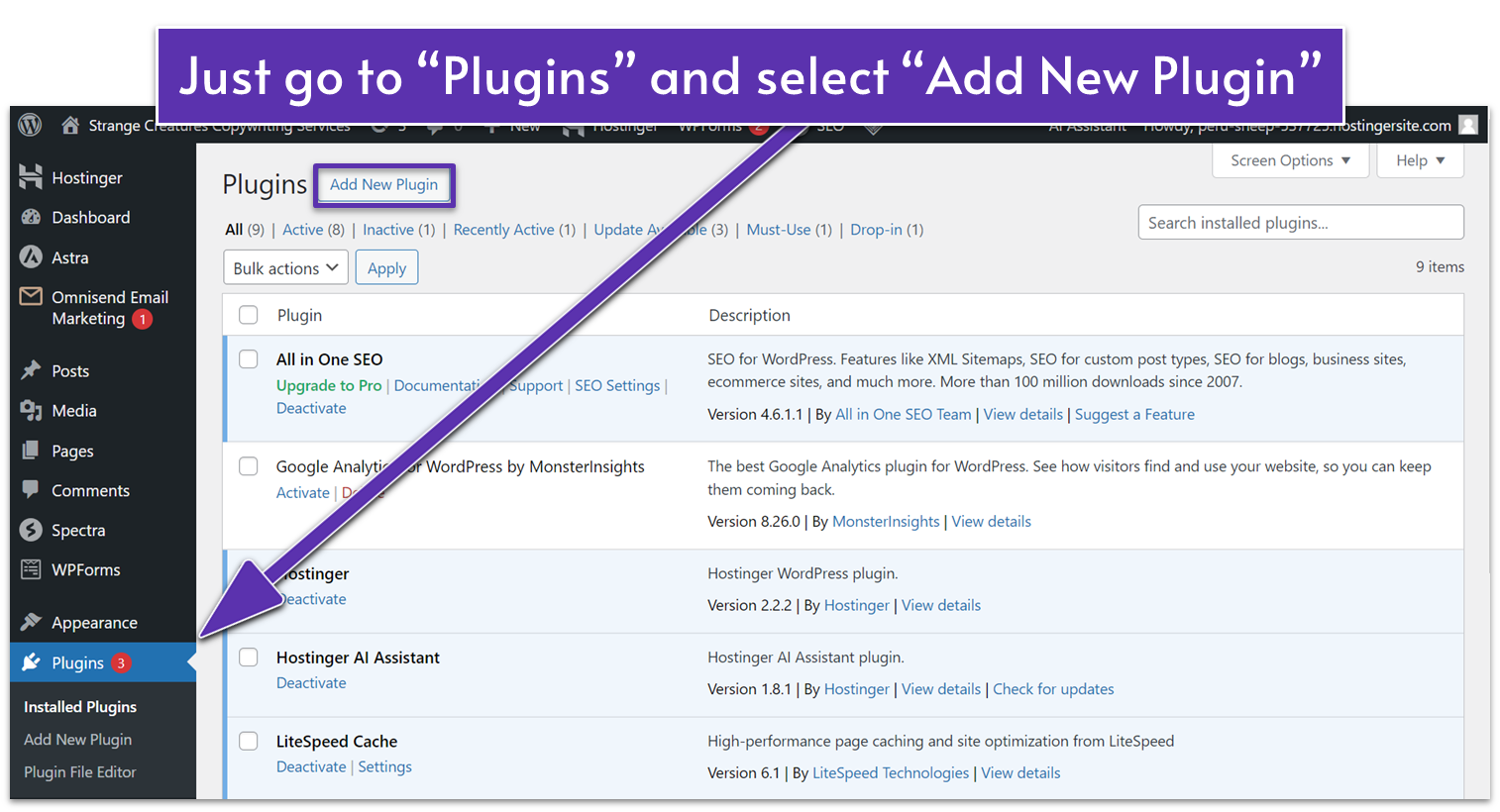
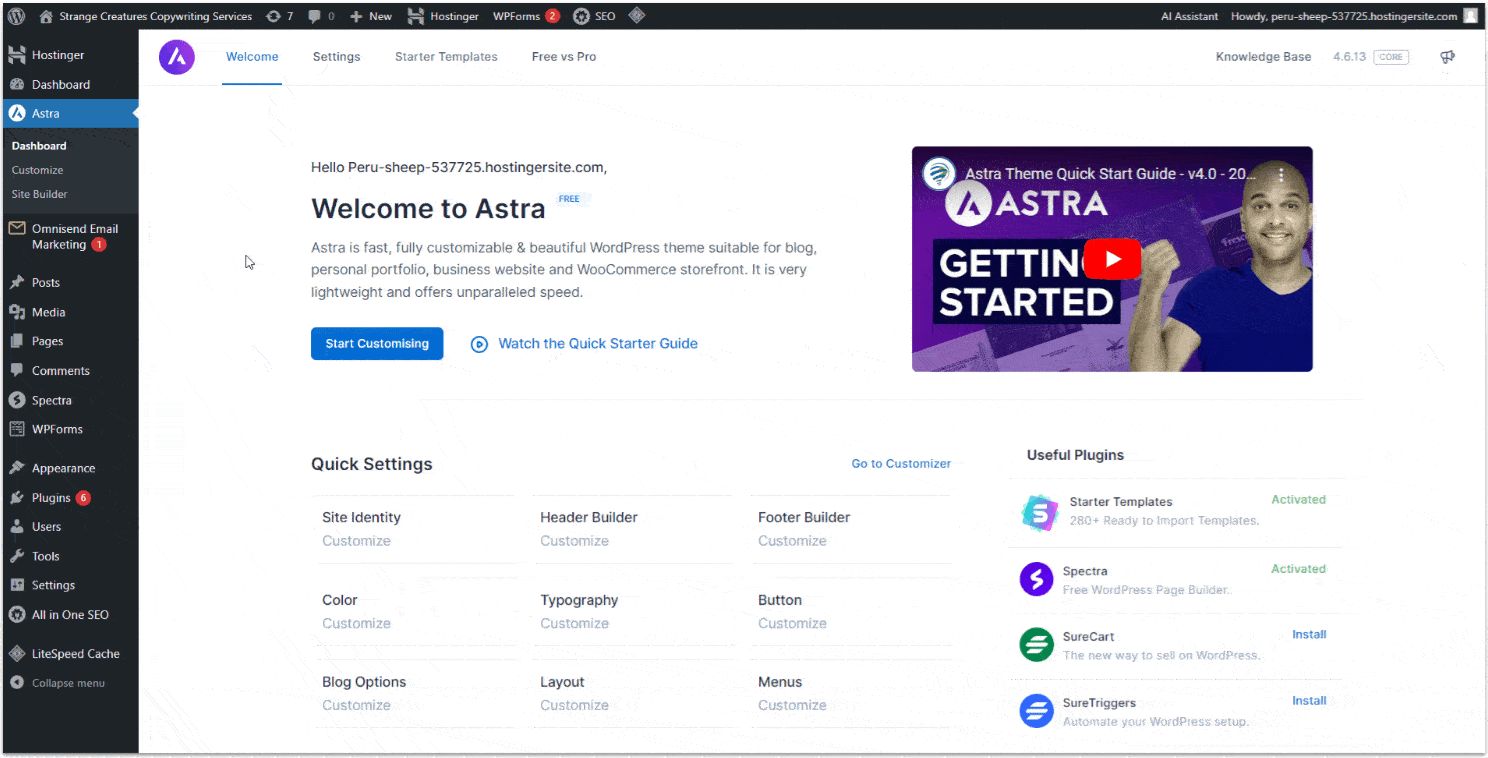
Consider These Useful (Free) Plugins
One of the greatest advantages of using WordPress to create your site is the wide range of plugins. Different plugins can help you edit or add unique elements to your site, rank higher on search engine result pages (SERPs), improve your site’s performance, and more. Some plugins are useful for all types of businesses, but depending on your business type, there may be additional plugins that specifically cater to your business’ needs.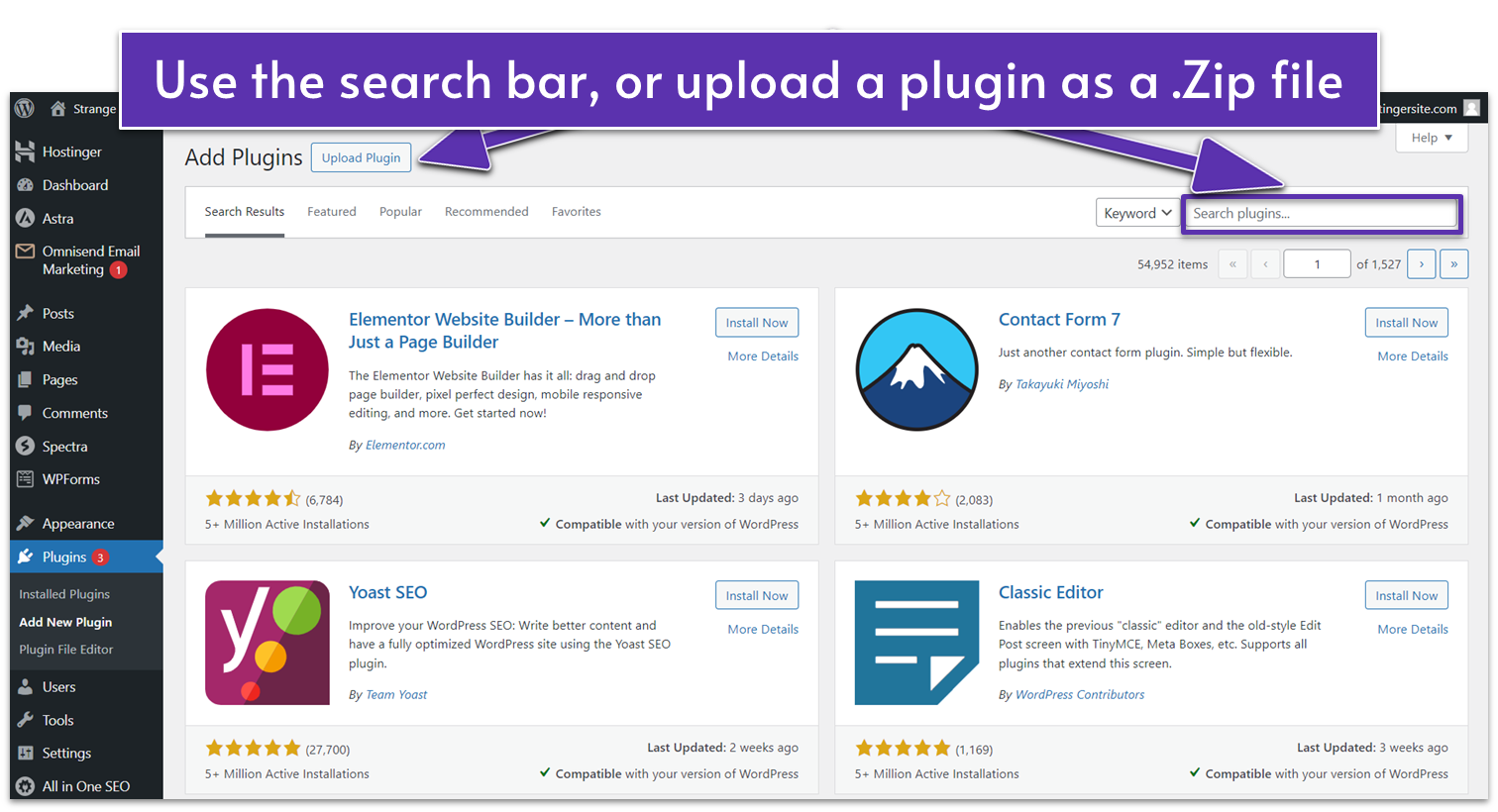
- Yoast SEO. Yoast gives you simple, user-friendly tools to improve your search engine optimization (SEO).
- Jetpack. Jetpack mostly works in the background as a performance and security enhancer, though it also offers some useful marketing tools to bring extra attention to your site.
- Wordfence. Wordfence is perhaps the most popular security plugin for WordPress and helps keep your website safe from malicious attacks.
- WooCommerce. This won’t be crucial for all businesses, but if you’re trying to sell directly from your site, then the WooCommerce plugin is one of the best e-commerce integrations available for WordPress.
Set Up and Customize the Most Relevant Pages
For this guide, I created a website for a fictitious copywriting and marketing agency, which means I’ll focus more on attracting clients and providing contact information than e-commerce. Don’t worry though, the point is to keep things general enough that they will be useful to you regardless of your business.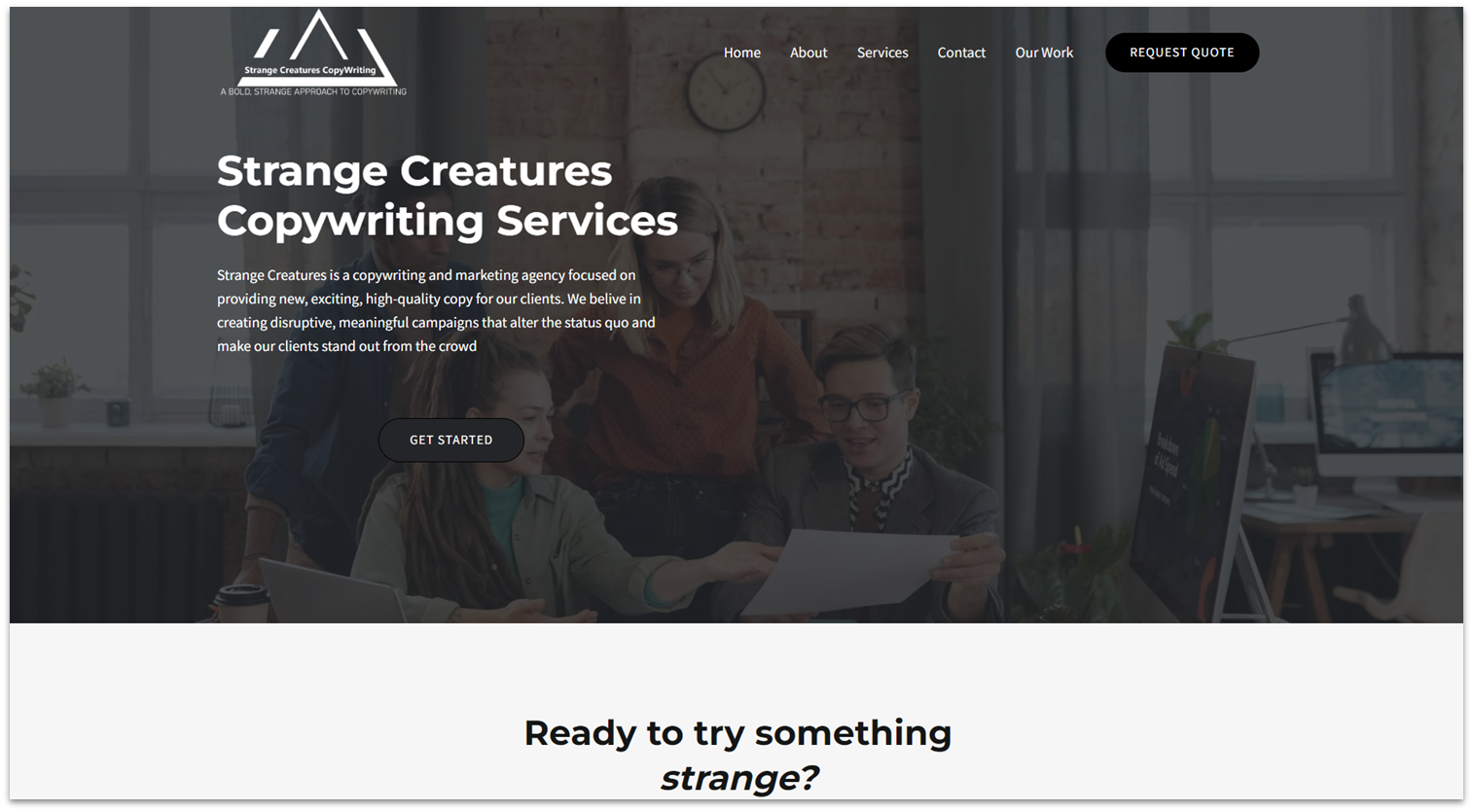
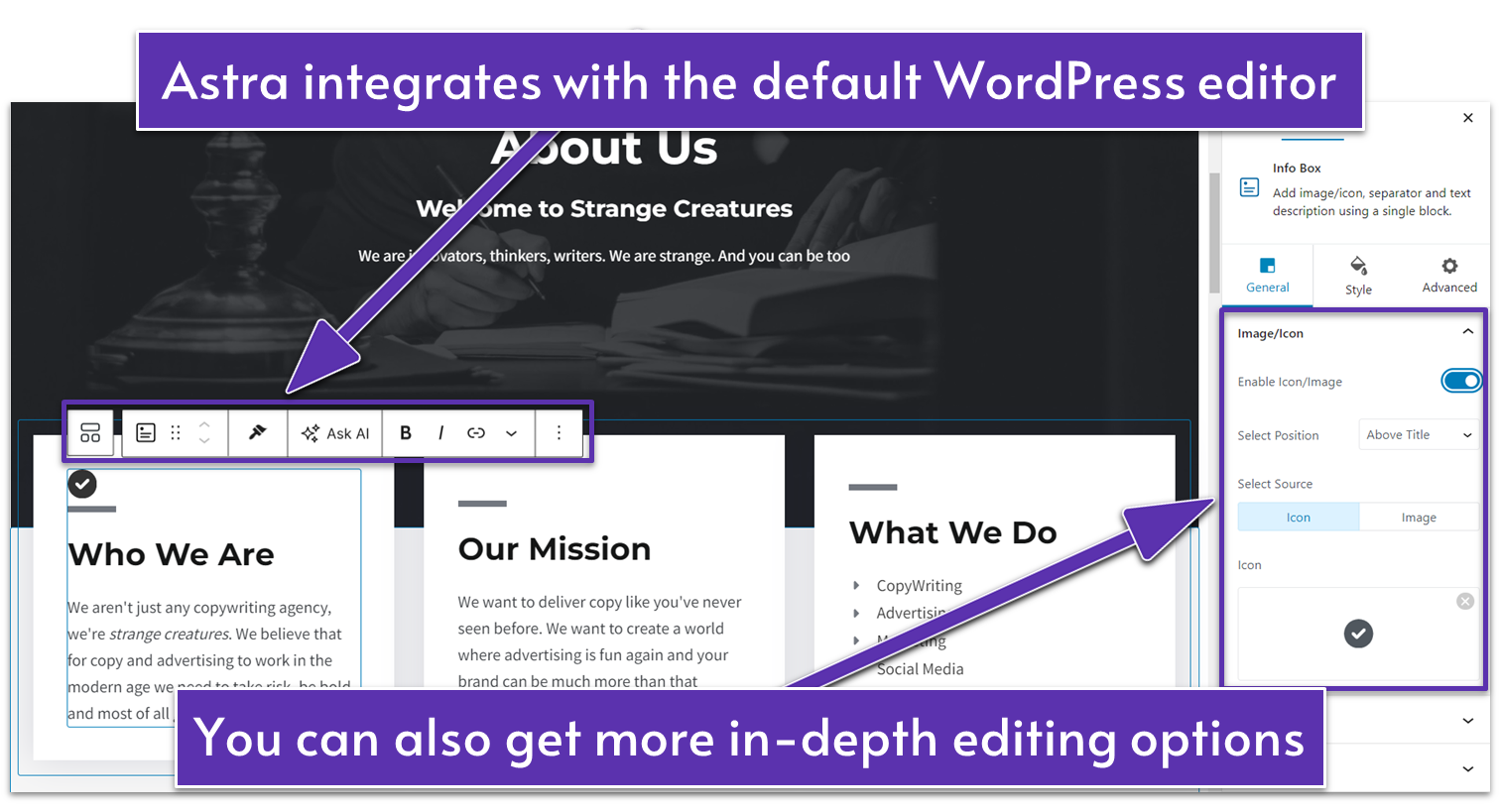
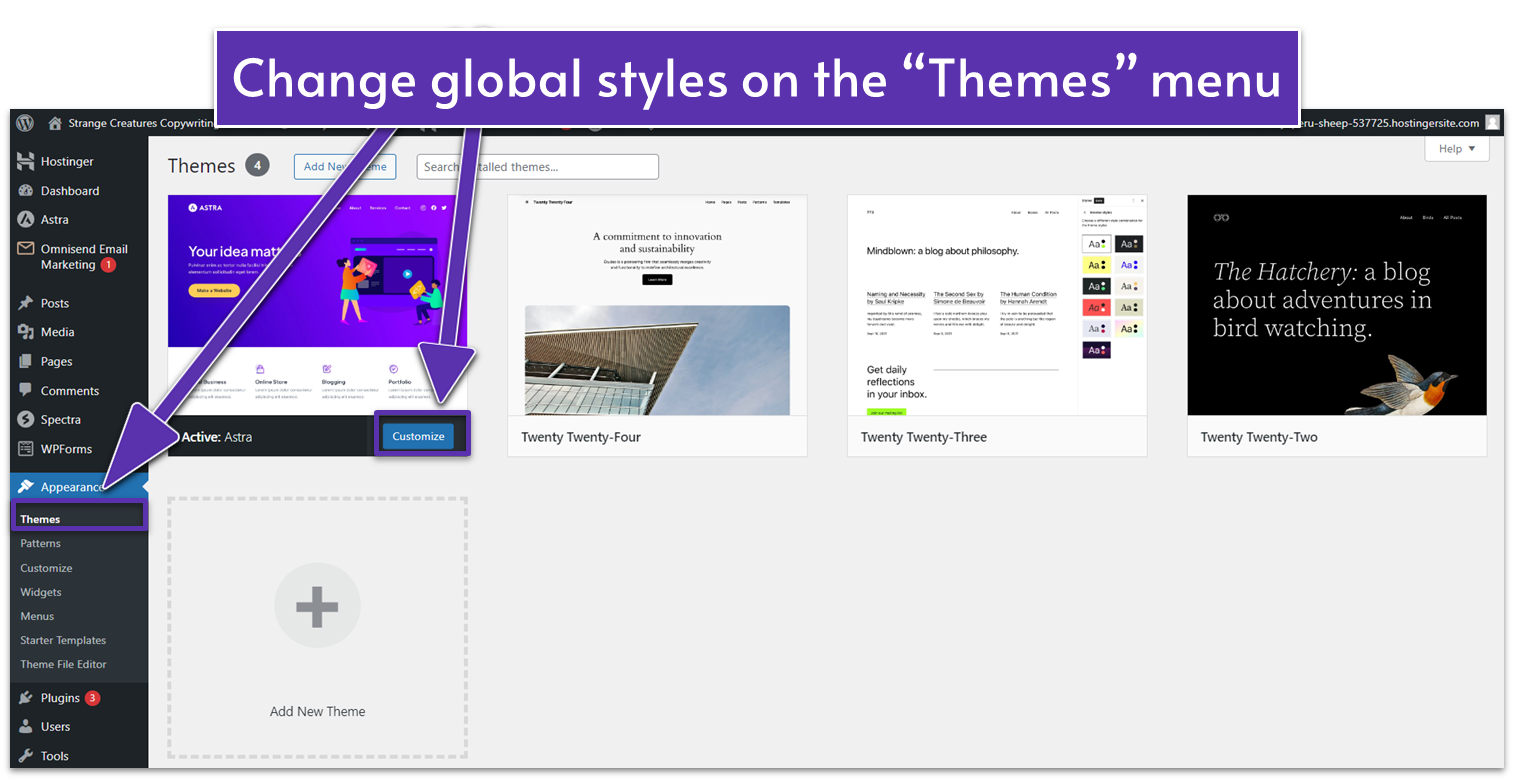
Revise, Test, and Publish Your Business Site
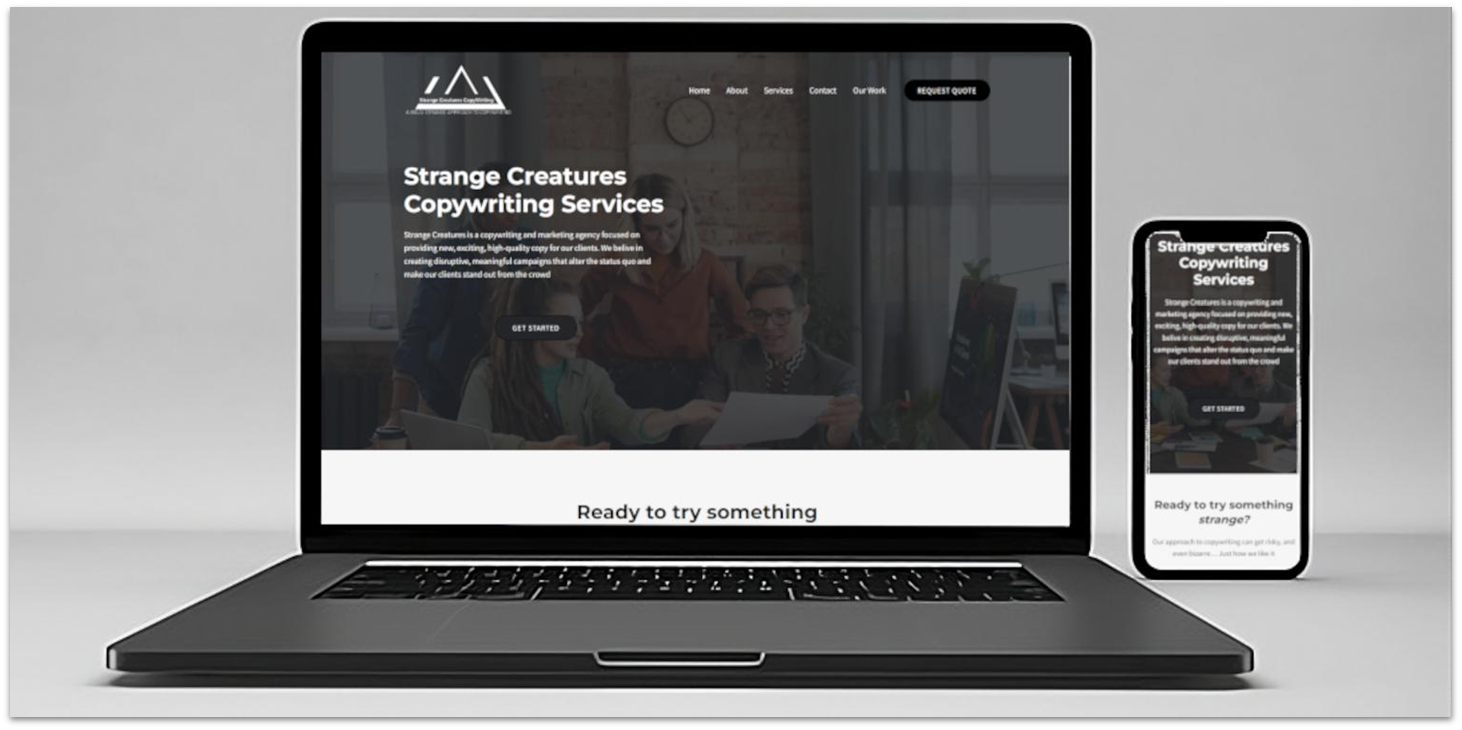
Promote Your Site
Once your site is up and running, you still have the extremely important task of promoting it to potential clients. Once again, the exact steps you’ll take will depend on your business type. If your website is simply the online presence of your brick-and-mortar business, make sure to add it to your Google Maps business profile. You should also focus more on optimizing your website for higher rankings in your area (also known as local SEO) instead of trying to optimize it for general search engine results. On the other hand, if you want to attract a broader, worldwide audience, you might want to focus more on a social media or marketing campaign. You might even benefit from creating a newsletter that keeps visitors updated about your latest endeavors. This is where your content plan and research come into play. What and where you promote will depend on your target audience, scope, and some trial and error. If you aren’t that experienced with SEO and marketing, don’t worry. You can always hire a freelance expert to improve your business visibility at an affordable rate. A freelance expert can help you create and execute an effective, high-quality content plan without going broke. To learn more, you can check out our list of the best freelance platforms in 2025. Keep in mind, though, that promoting your site isn’t a one-and-done deal. If you want your business website to be successful, you’ll need to continuously update and adapt your promotional content.An Easier Alternative to Get a Business Website Online
There are many reasons for choosing WordPress when creating your business website, but it isn’t the only option. You can also use a website builder to help you create your business website. There’s a lot of variation, but the best builders give you the tools to design and manage your business website while taking care of the more technical aspects for you. So, instead of fussing over CMSs, CDNs, and other acronyms, you can concentrate on designing your site and filling it with the functionalities that you need. If you go down this route, you’ll have plenty of high-quality options. The best one for you will depend on your business, but I can make some general recommendations.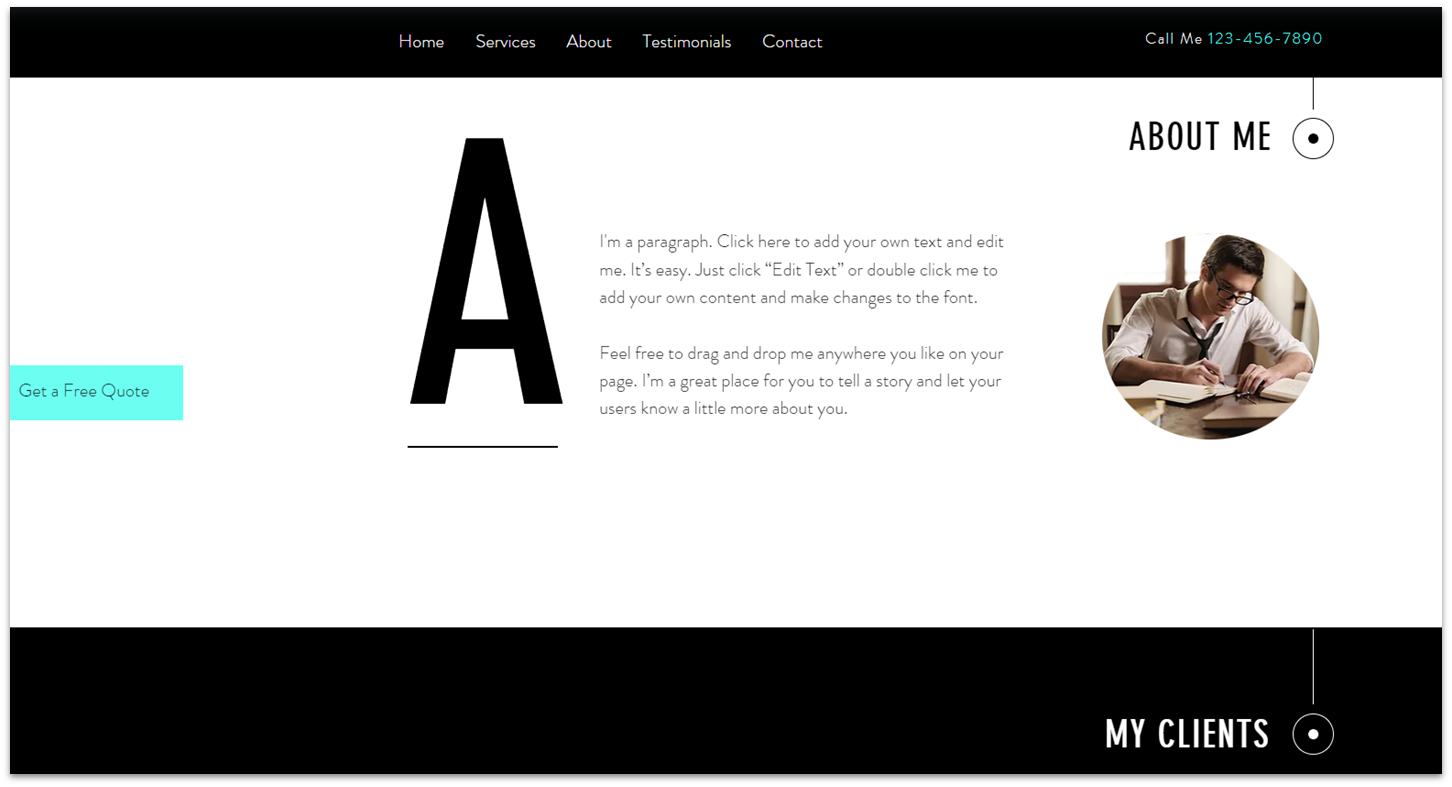
| Best feature | Best for | ||
| Wix | Complete creative control |
Businesses with a unique brand identity |
|
| Squarespace | Optimized for eye-catching visuals |
Creatives and creative portfolio sites |
|
| Shopify | Extremely robust e-commerce infrastructure |
Online stores |









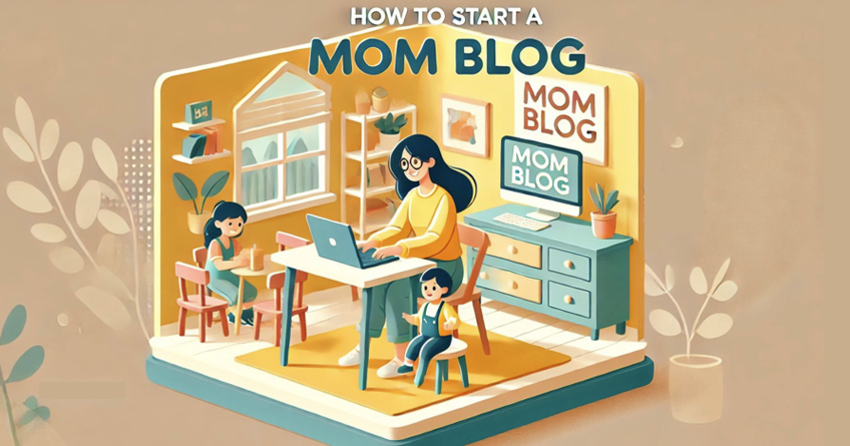

![8 Best Enterprise WordPress Hosting (Scalable & Reliable) [2025]](https://dt2sdf0db8zob.cloudfront.net/wp-content/uploads/2024/11/Best-Enterprise-WordPress-Hosting-1.png)




